| | | | | | | Presented By Babbel | | | | Axios World | | By Dave Lawler · Dec 01, 2022 | | Welcome back to Axios World. - Tonight's edition (1,990 words, 7 ½ minutes) looks at economic tensions between the U.S. and some of its closest allies, plus the talks in Venezuela and the scandal surrounding South Africa's president.
Heads up: Axios will be at the 2023 World Economic Forum in Davos. If you'll be there, request an invite for our events. | | | | | | 1 big thing: Biden's "made in America" push alienates allies | 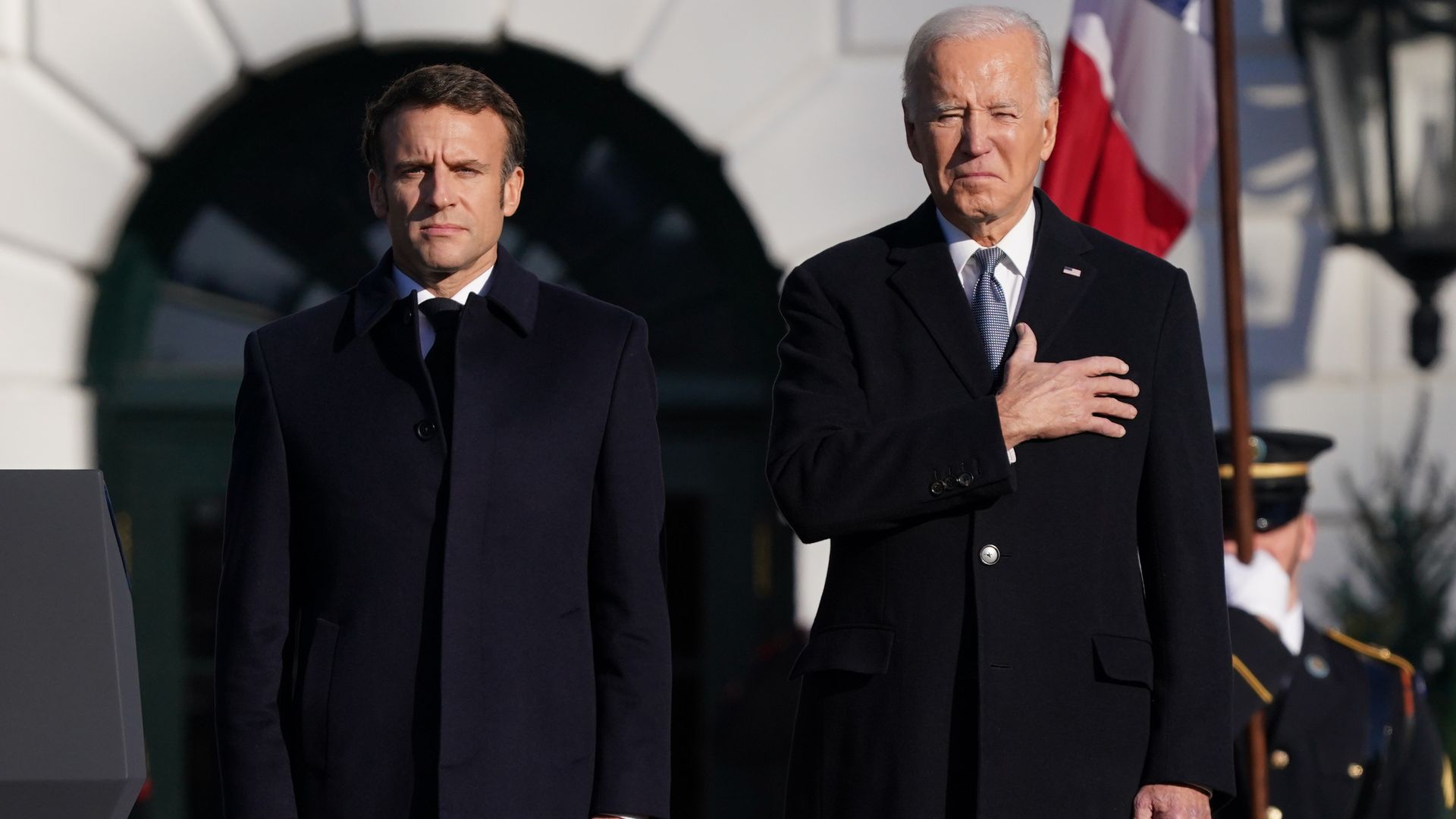 | | | Presidents Macron and Biden today at the White House. Photo: Nathan Howard/Getty Images | | | | French President Emmanuel Macron's state visit to Washington has been a showcase of warmth and unity except on one key issue: the Inflation Reduction Act (IRA), which Macron reportedly denounced to U.S. lawmakers on Wednesday as "super aggressive" toward European companies. Why it matters: President Biden wants the U.S. to dominate production of electric cars, semiconductors and green technology, partly out of a desire to compete with China. But for some close U.S. allies, Biden's policies look like a more progressive form of "America First." Driving the news: France and Germany are particularly concerned that the IRA's big tax breaks for parts used in electric vehicles and renewable energy products apply only if they're produced in North America. - French officials say that will further disadvantage European companies already contending with sky-high operating costs due to Europe's energy crunch, and disincentivize companies from basing their production in Europe.
What they're saying: In a press conference alongside Macron today, Biden said those were "glitches" in the legislation that could be "ironed out." But that would require action from Congress, which looks unlikely. - Macron said it's now up to Europe to "synchronize" its approach with America's, an apparent endorsement of similar subsidies for European industry.
- That idea is controversial. In an interview today during his own visit to Washington, Stefano Sannino, secretary-general of the EU's foreign policy arm, told Axios it wouldn't be "rational" to end up in "a situation where the United States is subsidizing on one hand and the European Union is subsidizing on the other hand."
- But the issue isn't going away. Brussels' top trade official has even floated a possible legal challenge to the IRA at the WTO.
While the backlash to the IRA has been growing in Europe since it passed in August, it was swift and severe in South Korea and, to a lesser extent, Japan. - Fears that companies like Hyundai that had made big bets on electric vehicles would suddenly become uncompetitive in a critical market were front-page news in Seoul. "It was almost a diplomatic crisis," a South Korean official who requested anonymity to speak candidly tells Axios. The U.S. seemed at first to underestimate the scale of the public anger in Korea, the official says.
- U.S. and South Korean officials have discussed the issue continuously, including twice at the presidential level, but the odds of a legislative fix look slim, the official says.
- Seoul is pushing for a more limited amendment to delay implementation until 2025, by which time Hyundai will have opened a plant in Georgia, but that path also looks "very difficult," the official says.
State of play: A French diplomat tells Axios the IRA is one issue among many to be discussed and has not cast a pall over Macron's visit. - Likewise, Sannino said it was a "very relevant" issue but couldn't get in the way of the "global agenda that we need to take care of."
- Yes, but: The Korean official says after the IRA, "there is a hesitation on our part — we cannot fully cooperate with everything they may request of us, on China for example."
- For example, the official says the Biden administration's push for closer coordination between the U.S., Japan, South Korea and Taiwan on semiconductor production would be simpler if not for the IRA dispute.
What to watch: Chips are another area where Biden's efforts to compete with China could lead to tensions with allies. - The U.S. recently imposed strict export restrictions on certain advanced chips and chip-making equipment.
- Japanese and Dutch firms both manufacture tools needed to make advanced chips, but the U.S. has not come to an agreement with those countries on enforcement, and the Netherlands seems inclined to resist U.S. pressure.
|     | | | | | | Part II: The global showdown over chips | 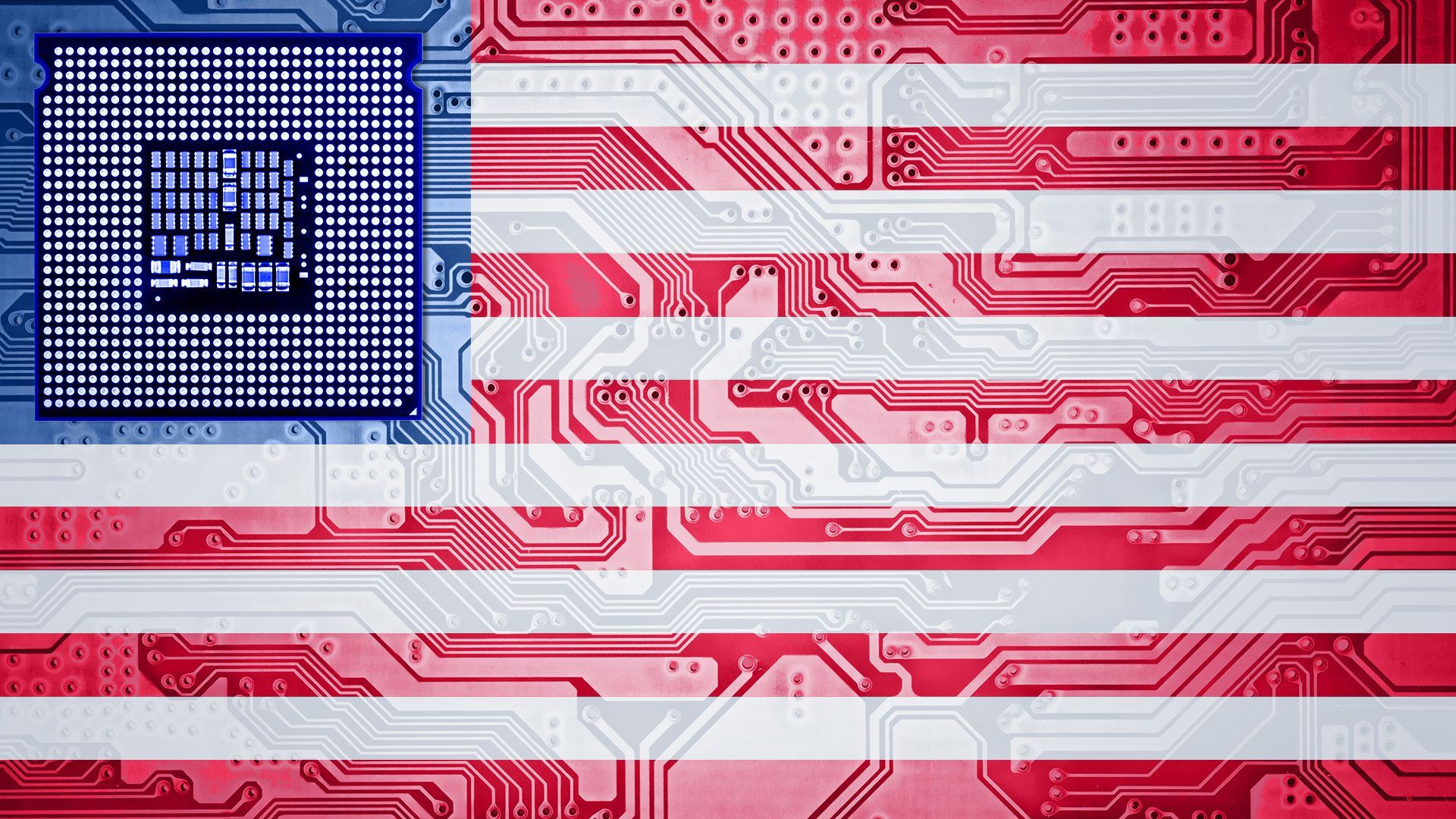 | | | Illustration: Shoshana Gordon/Axios | | | | Biden's export controls are designed to block China from manufacturing high-end chips and ensure Beijing remains far behind the industry's cutting edge. The other side: According to a leaked cable sent by Israel's embassy in Beijing to the Foreign Ministry in Jerusalem, Chinese officials and experts privately claim they'll still be able to make or acquire any chips needed in particularly sensitive areas like weaponry and artificial intelligence. The cable, obtained by Axios' Barak Ravid, quotes one senior Chinese official as saying, "the U.S. will have a hard time enforcing the new limitations and many companies will find ways to bypass them, even American companies." - According to the cable, Chinese officials contend the steps will ultimately work to China's advantage because they'll now intensify their efforts to replace and ultimately surpass U.S. technology.
- However, China was already investing heavily toward that objective, notes Chris Miller, author of the book "Chip War." "These controls are going to be pretty tough for companies or for China to get around over at least a five-year time horizon," he says.
- The Chinese embassy in Washington did not reply to a request for comment. A spokesperson for the Israeli Foreign Ministry declined to comment on the memo.
The big picture: Biden doesn't just want to ensure that the most advanced chips aren't made in China, he wants them to be made in the U.S. Under the CHIPS Act, the U.S. will pump billions into semiconductor manufacturing and R&D. - The subsidies are available both to U.S. firms and to overseas companies with facilities in the U.S., such as the big South Korean and Taiwanese chipmakers.
- This week, Biden visited a facility recently opened in Michigan by South Korea's SK Siltron and boasted that "instead of relying on chips made overseas in places like China, the supply chain for those chips will be here in America."
Between the lines: While officials in South Korea and Taiwan haven't raised concerns over Biden's individual policies, "I think there is a concern that the U.S. push to play a bigger role in the chip industry globally will come at the expense of someone else," says Miller. - "As lots of different countries — in Europe, Japan, the U.S. — try to have a bigger stake in the industry, there's only so much pie to go around."
|     | | | | | | 3. The U.S. strategy on Venezuela talks | 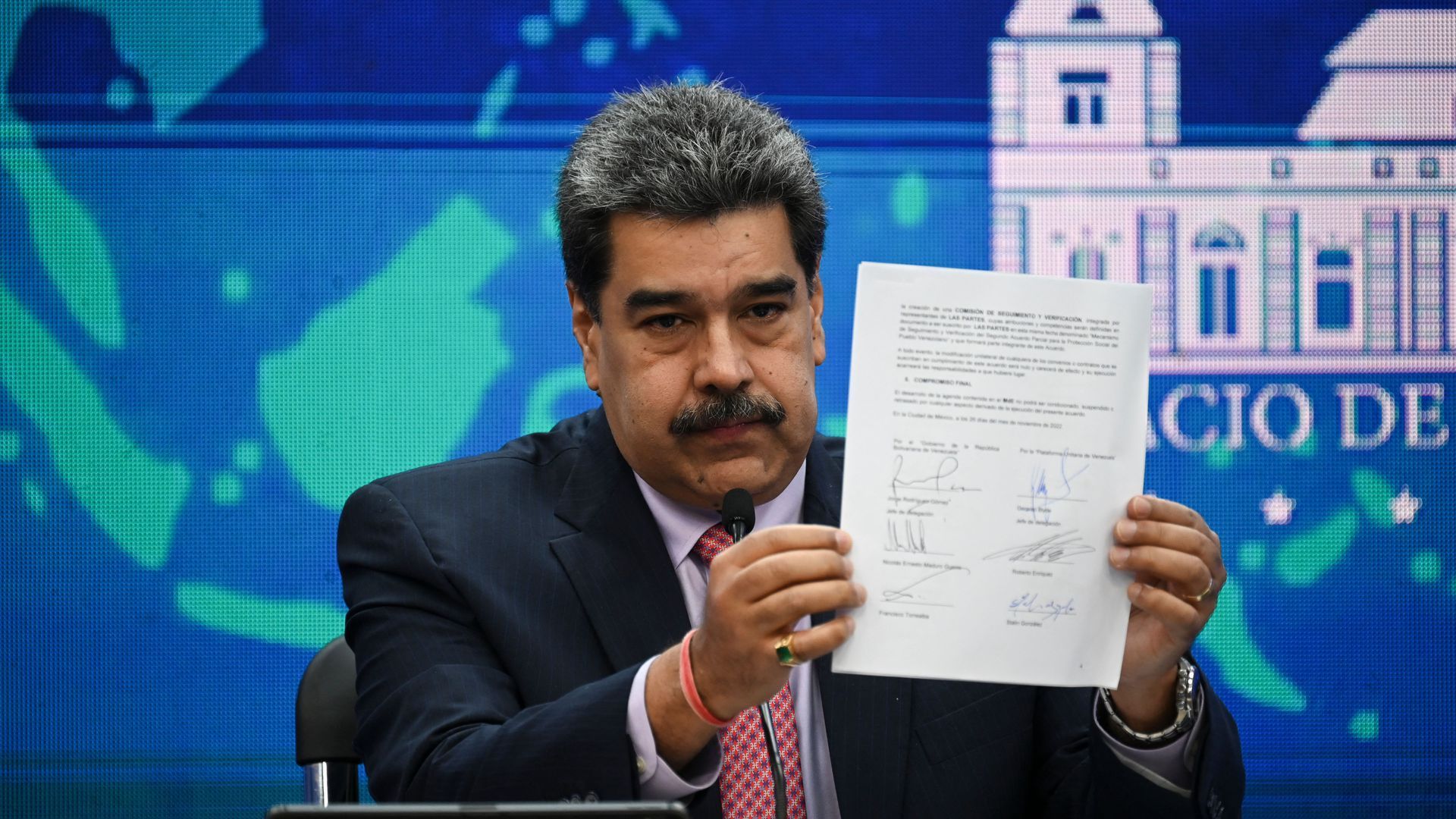 | | | Nicolás Maduro holds a copy of the agreement between his government and the Venezuelan opposition on Nov. 30. Yuri Cortéz/AFP via Getty Images | | | | The U.S. has a "menu" of potential sanctions relief to offer the Venezuelan regime and will increase or decrease the pressure depending on the next steps from Nicolás Maduro's government, a senior U.S. official said in an interview with Axios Latino's Marina E. Franco and me. Driving the news: Maduro's representatives and the Venezuelan opposition agreed during renewed negotiations in Mexico City last weekend to set up a UN-backed fund to deploy about $3 billion of Venezuela's frozen international assets for humanitarian aid. Yes, but: That was just a small first step, and past talks have collapsed without anything to show for them. - The U.S. official, who requested anonymity, argued that conditioning oil sanctions relief on political concessions had a better chance of breaking the deadlock than the failed "maximum pressure" approach.
- That tit-for-tat process is still a "work in progress," the official said. They haven't given Maduro a detailed formula beyond "big steps, big sanction (lifted); small steps, small sanction."
The big picture: While the Biden administration shares the Venezuelan opposition's goal of free and fair elections in 2024, the official said restoring democracy "may be a longer undertaking." - In the meantime, the U.S. also wants to focus on improving the humanitarian situation and building consensus with countries in the region.
Catch up quick: The U.S. and other governments have recognized opposition leader Juan Guaidó as Venezuela's legitimate president since 2019, but Maduro has kept governing. What to watch: The U.S. still officially recognizes Guaidó, but his status as Venezuela's "interim president" is slipping both within the Venezuelan opposition and and internationally. The EU no longer recognizes him, for example. - The U.S. official said it was up to the Venezuelan opposition to decide how to format itself, and "we will organize ourselves around that."
Go deeper. |     | | | | | | A message from Babbel | | Polish up your Polish — or 13 other languages | | |  | | | | Not only can you learn to say "dziękuję ci" ("thank you" in Polish!) with Babbel, but it also helps get your pronunciation right from the start. A language learning platform developed by 150 linguists, Babbel has lessons, exercises, videos and more. Speak a new language in as little as three weeks. | | | | | | Bonus: Where in the world? | 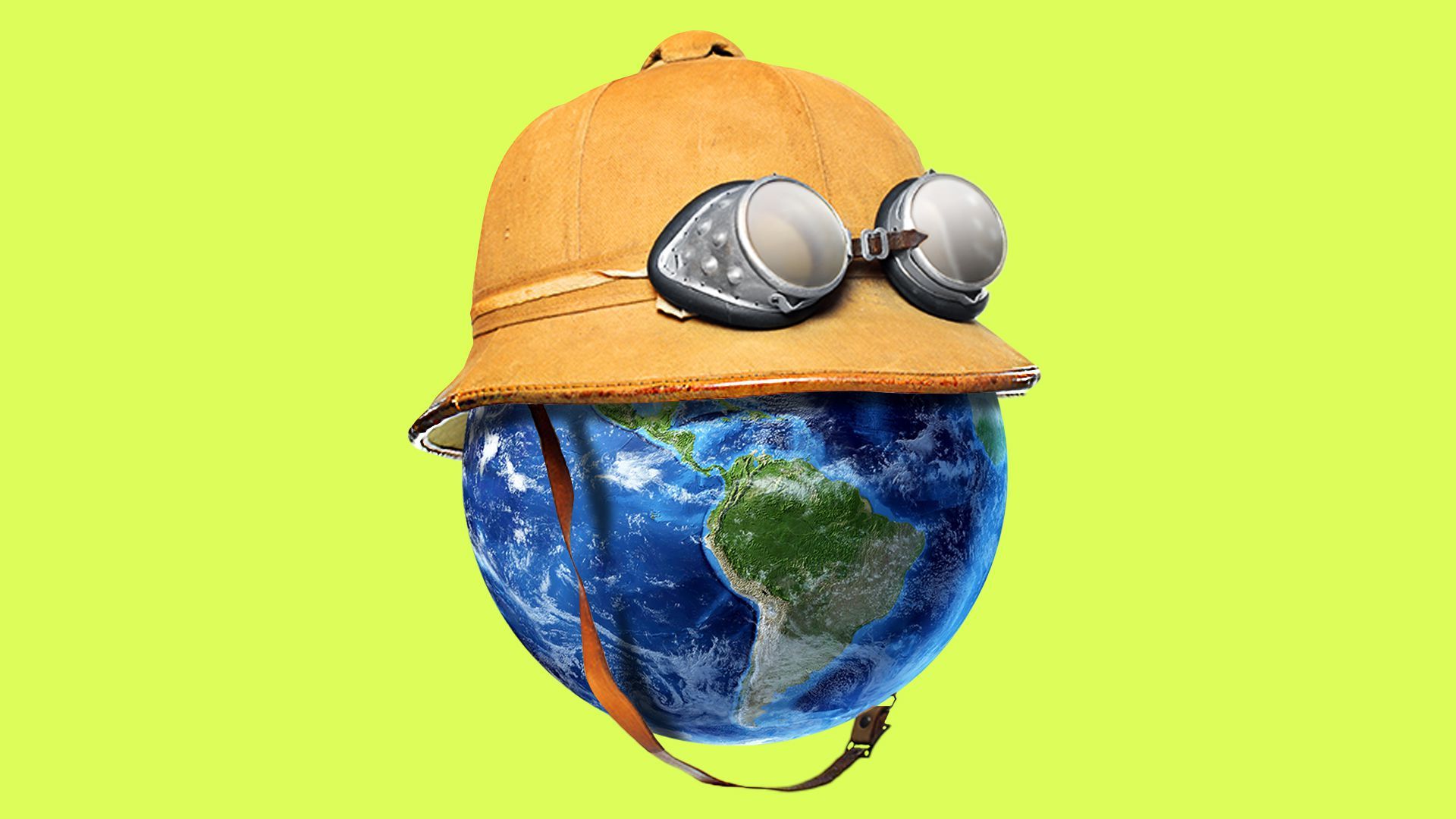 | | | Illustration: Natalie Peeples/Axios | | | | While we're on the topic of state visits... 1. The first foreign head of state to receive a state dinner at the White House was King David Kalakaua of _____, which is no longer a sovereign country, in 1874. 2. Two years later, Emperor Pedro II, the second and final monarch of ___, also visited President Ulysses S. Grant. 3. No European head of state visited Washington until Prince Albert I of the tiny state of ___ in 1913. Scroll to the bottom for answers |     | | | | | | 4. Global news roundup | 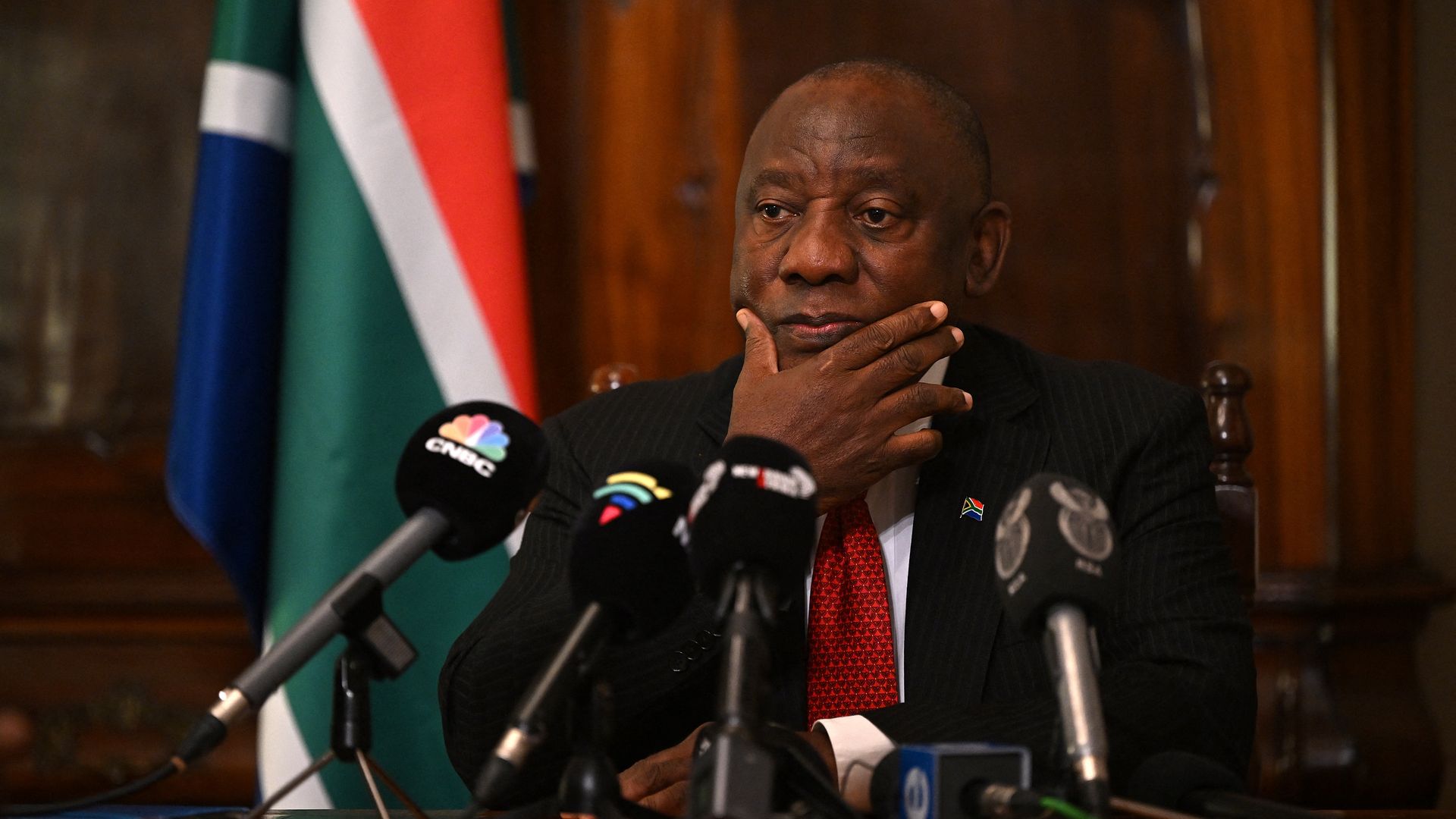 | | | South Africa President Cyril Ramaphosa. Photo: Justin Tallis/AFP via Getty Images | | | | 1. An independent panel determined that South African President Cyril Ramaphosa has a "case to answer" over potential "serious misconduct" in a scandal related to the theft of huge sums of cash from his ranch. - Why it matters: The report sparked allegations of potential tax evasion and abuse of power because he ordered his official security detail to track down the culprits without informing the authorities. Ramaphosa denies wrongdoing. He could be the first South African president to be impeached.
2. China's Covid czar said today that the country is entering a "new stage and mission" in its efforts to control the spread of COVID-19 — a possible signal that "zero-Covid" could be eased in the wake of protests, though no specific policy change was announced. - Go deeper: Internet users in China are racing to screenshot and repost content related to the protests as censors try to scrub social media spaces of dissent, Axios' Bethany Allen-Ebrahimian reports.
3. The European Commission has recommended that around $14 billion in Covid recovery funding be withheld from Hungary because of the country's democratic backsliding. 4. Biden said in his press conference with Macron that he would be willing to meet with Vladimir Putin if Putin showed he was serious about making peace in Ukraine, though he expressed skepticism that Putin had any such intention. |     | | | | | | 5. Chinese workers overseas face abuse: report | 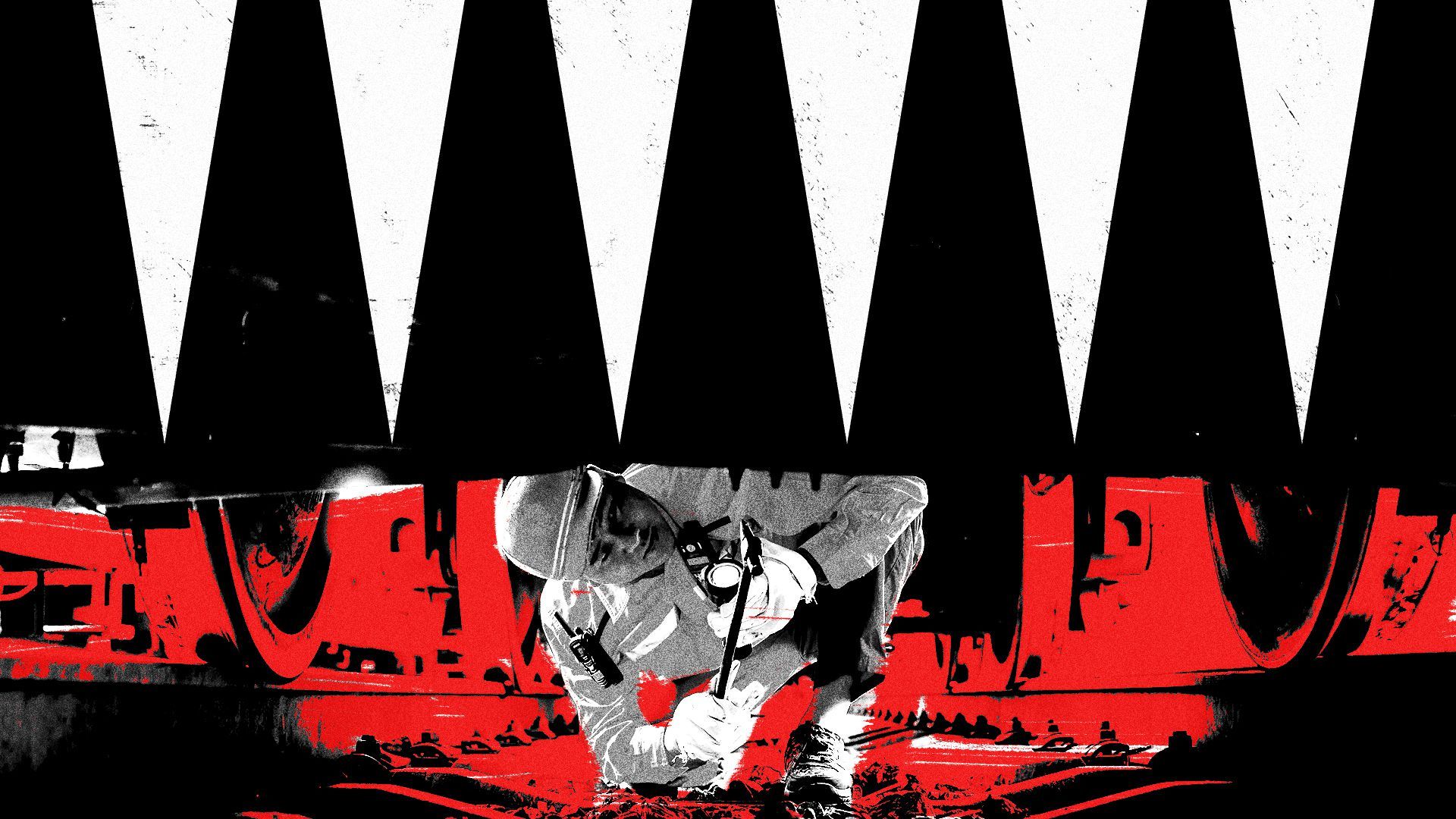 | | | Photo illustration: Shoshana Gordon/Axios. Photo: Wang Guansen/Xinhua via Getty Images | | | | Chinese workers on state-backed infrastructure projects overseas are often exposed to exploitation by their employers with little protection from Beijing or the host country, Axios' Han Chen reports. The big picture: There were nearly 1 million overseas Chinese workers at the end of 2019, according to official statistics. While that number dropped to less than 600,000 during the pandemic, undocumented Chinese workers aren't included in those statistics. What's happening: Chinese laborers may be subject to deceptive job ads, passport retention, wage withholding and even physical violence, according to a report by U.S.-based nonprofit China Labor Watch. - Many workers told China Labor Watch that they tried to file complaints with the local Chinese consulate but were told to negotiate with their employers.
- Even some countries with strong legal protections for foreign workers, such as Serbia, have bilateral agreements with China that suspend domestic labor laws for Chinese workers.
- Zoom in: Chinese workers at a copper mine in Serbia told local media BIRN last year that they worked 12 hours per day, were otherwise confined to their living quarters, and were forced to hand over their passports.
The other side: A spokesperson for the Chinese embassy said, "We oppose groundless accusations and urge relevant parties to stop making up excuses to smear the Belt and Road Initiative." |     | | | | | | 6. Jiang Zemin: 1926-2022 |  | | | Jiang Zemin during a meeting in 1994. Photo: Forrest Anderson/Getty Images | | | | Former Chinese President Jiang Zemin, who rose to power after the Tiananmen Square protests and presided over years of explosive growth, died on Wednesday. He was 96. Worth watching: Jiang sat down with "60 Minutes" in 2000 for a wide-ranging and pretty entertaining interview. |     | | | | | | 7. Stories we're watching |  | | | Sunset on the island of Martinique. Photo: Charly Triballeau/AFP via Getty Images | | | - Oil prices are back near pre-Ukraine war levels
- World Cup: U.S. approves $1 billion arms sale to Qatar; Qatar says 400-500 migrant workers died
- Iran committed to Thailand that it won't target Israeli tourists
- Why Zelensky thinks Putin won't use nukes
- Nigerian stowaways survive 11 days on rudder of ship
- UN adds French baguette to world heritage list
- French workers can't be fired for being "no fun"
Quoted: It starts with "struggling with fear, but feeling this urge to do something. And then you step out, and you realize there are more people like you, and that's very energizing." — Zhou Fengsuo, a student leader during the Tiananmen movement, to Axios' Bethany Allen-Ebrahimian on the current protests in China |     | | | | | | A message from Babbel | | Say "ja" to learning a new language | | |  | | | | Babbel has what you need to learn how to hold real-world conversations in Dutch, Spanish and more. Learn through: - Expert-curated lessons.
- Speech technology that improves your accent.
- Context and cultural tips.
- Live online classes or videos.
Speak a new language in as little as three weeks. | | | | Answers: 1. Hawaii; 2. Brazil; 3. Monaco. |  | | Are you a fan of this email format? Your essential communications — to staff, clients and other stakeholders — can have the same style. Axios HQ, a powerful platform, will help you do it. | | | | | | Axios thanks our partners for supporting our newsletters. If you're interested in advertising, learn more here.
Sponsorship has no influence on editorial content. Axios, 3100 Clarendon Blvd, Arlington VA 22201 | | | You received this email because you signed up for newsletters from Axios.
Change your preferences or unsubscribe here. | | | Was this email forwarded to you?
Sign up now to get Axios in your inbox. | | | | Follow Axios on social media:    | | | | | |
No comments:
Post a Comment